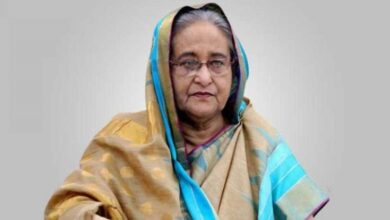Structural reforms demanded for Bangladesh SME sector development
Policymakers and business leaders have called for the timely formulation and proper implementation of a better policy to reform the small and medium enterprises (SME) sector to protect the interests of entrepreneurs and the national economy.
They voiced the demand today during a discussion titled “Reform of SME Policy-2019 for Sustainable Growth and Innovation,” organised by the Dhaka Chamber of Commerce and Industry (DCCI) at its office in the capital’s Motijheel.
Speakers noted that the SME policy, introduced in 2019 with a five-year validity, expired in June this year without being fully implemented.
Highlighting the need for policy reform, Md Salim Ullah, additional secretary (policy, law, and international cooperation) of the Ministry of Industries, said an international-standard policy will be developed after consultations with stakeholders and necessary amendments to the existing policy.
He added that many valuable suggestions were made during the discussion, and these will be integrated into the new policy to address the needs of all stakeholders and support the growth of the SME sector.
Md Anwar Hossain, vice chairman of the Export Promotion Bureau (EPB), said while excellent policies for SMEs have been created, they are not being properly implemented, and there are several inconsistencies in time-bound programmes.
“For instance, while BSCIC and the SME Foundation have been tasked with adding new market growth and export opportunities to the SME policy, the EPB has not been included,” he said.
“There is also a need to establish standards for SME products and services, which will improve product quality, efficiency, and competitiveness in the global market,” he added.
He further emphasised the importance of strengthening backward linkages in the SME sector and recommended simplifying the tax filing process, particularly for cottage, micro, small, and medium enterprises (CMSMEs).
Addressing the discussion, SME Foundation General Manager Md Nazeem Hassan Satter said that although SME policies and action plans were formulated, the necessary funding from the government was not allocated.
“Despite repeated requests to the Ministry of Finance, funds have not been disbursed. How can a policy be implemented without funds?”
“There is no coordination among the relevant institutions for implementing the SME policy. One institution is unaware of what the other is doing,” he added.
Echoing his concerns, Bangladesh Small and Cottage Industries Corporation (BSCIC) Director (skills and technology) Kazi Mahabubur Roshid suggested strengthening the SME Foundation and BSCIC and said that a clear delineation of responsibilities among organisations should be outlined in the new policy.
Presenting the keynote, DCCI President Ashraf Ahmed emphasised that the economy must move beyond agriculture to industrialisation and expand the export of the service sector.
He said if promoted and helped to grow, the CMSME sector can generate enough jobs in the country, especially for the five lakh graduates entering the job market annually.
Ashraf recommended redefining the SME criteria across government agencies, including the Bangladesh Bank, to facilitate loan access.





